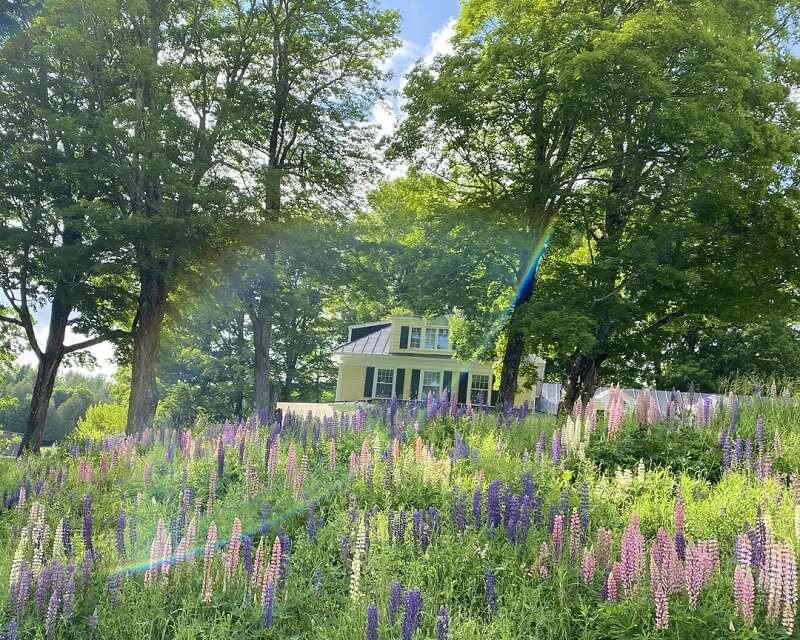One homeowner took to the web to jokingly share a gorgeous photo of their front yard "protest."
"My small army of lupines are holding their annual protest against lawns," said the original poster, a Vermont resident.

Their photo, taken at the bottom of a slope leading to their house, shows a flourishing meadow of lupine flowers in full blossom. The purple, pink, and white flowers grow along tall stalks that stand out above their lush greenery.
"Planted a few lupines on this hill years ago and am still being rewarded for those minimal efforts," the poster explained in a comment. "These blooms are my favorite part of June. Nothing could make grass look uglier than this."
According to the Native Plant Trust, wild lupines are endangered in Vermont. Adding them back into local gardens is a great way to support native pollinators and other wildlife, which may use them for food and shelter. Since they're native, they're low-maintenance, only rarely needing to be watered beyond the natural rainfall in the area — and, of course, they're captivating.
Commenters were rightfully enchanted.
"This looks like a scene from a fairytale!" said one user.
"I don't think there is anyone on this earth who could stand in that spot and not feel like a Disney princess," the OP replied.
Unfortunately, some commenters weren't quite sure whether this field of flowers was a good or bad thing.
"There is a lupine that's native to Minnesota/the Northeast," one user said. "Unfortunately the type of lupine that [the original poster] planted is not native to the northern/northeastern US and can be invasive. Endangered Karner blue butterfly caterpillars cannot eat this type of lupine, but the adult butterflies can't tell the difference and will still lay their eggs on it, and it can hybridize with the native lupine."
It's a sobering reminder to double- and triple-check the sources of any seeds you plant.
Join our free newsletter for easy tips to save more, waste less, and help yourself while helping the planet.









